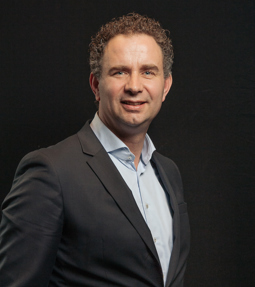Dementia and stroke impose an enormous burden on individuals and society. To address this challenge, tools are required to identify individuals at risk – ideally very early in the disease process, to support the trend towards prevention.
Image-based techniques are among the most promising of the technologies available to improve diagnosis, prognosis and treatment selection. In particular, the application of imaging technology combined with the use of advanced data analytics, such as deep learning, will be helpful. This way, imaging biomarkers will be combined with other biomarkers and clinical data. Initially, dementia and stroke will be addressed in the Medical Delta Diagnostics 3.0 program.
Dementia
Dementia is a brain disorder characterized by loss of cognitive function such as thinking and remembering, which affects people’s daily functioning. Using MRI imaging techniques and advanced analysis techniques, researchers want to understand better how dementia, such as in Alzheimer’s disease, develops. In this project, the researchers are especially interested in changes in the micro- and macrostructure of the brain, as measured with diffusion MRI, MR fingerprinting and other quantitative techniques. Using images and data from large population studies and techniques such as deep learning and multi-component parameter mapping, they estimate novel imaging biomarkers such as the microstructure within white matter tracts, tissue volume fraction, myelin water fraction, and small vessel disease imaging markers such as lacunar infarcts and white matter hyperintensities. These imaging biomarkers are expect to lead to more accurate and faster diagnosis and prognosis to improve disease treatment and support steps towards disease prevention.
Stroke
A stroke occurs when the blood flow to parts of the brain is cut off. This can happen due to a blood clot that blocks the blood flow or due to bleeding in the brain. These two different types of stroke require different treatments, and the right treatment must be selected.
Accurate and objective imaging systems can support treatment selection in the acute stage of stroke by determining which type of stroke the patient has dealt with, thus optimizing the treatment selection process.
Future perspective
In the future, a scan of a patient will not only be inspected and interpreted by the doctor quantitatively; clinical decision making will be supported qualitatively based on deep learning algorithms that have been trained on previous cases.
In this way, doctors can detect a disease in an early phase, make a diagnosis faster, determine the best possible treatment more precisely and monitor the disease over a longer time.
“In this program we aim to learn optimally from imaging and healthcare data from previous patients, to treat the next generation of patients more effectively”, says Wiro Niessen, professor in Biomedical Image Analysis at Erasmus MC and TU Delft.
Collaboration
This program brings together experts in different fields, such as imaging physicists, medical image analysis experts and clinicians, with the joint aim of developing, implementing and validating imaging techniques to improve patient care. The research relies on data and clinical expertise available through collaborations with population and clinical studies.
“Through the collaboration across the different disciplines of the Medical Delta institutes, we create a whole which is greater than the sum of its parts,” concludes Niessen.







